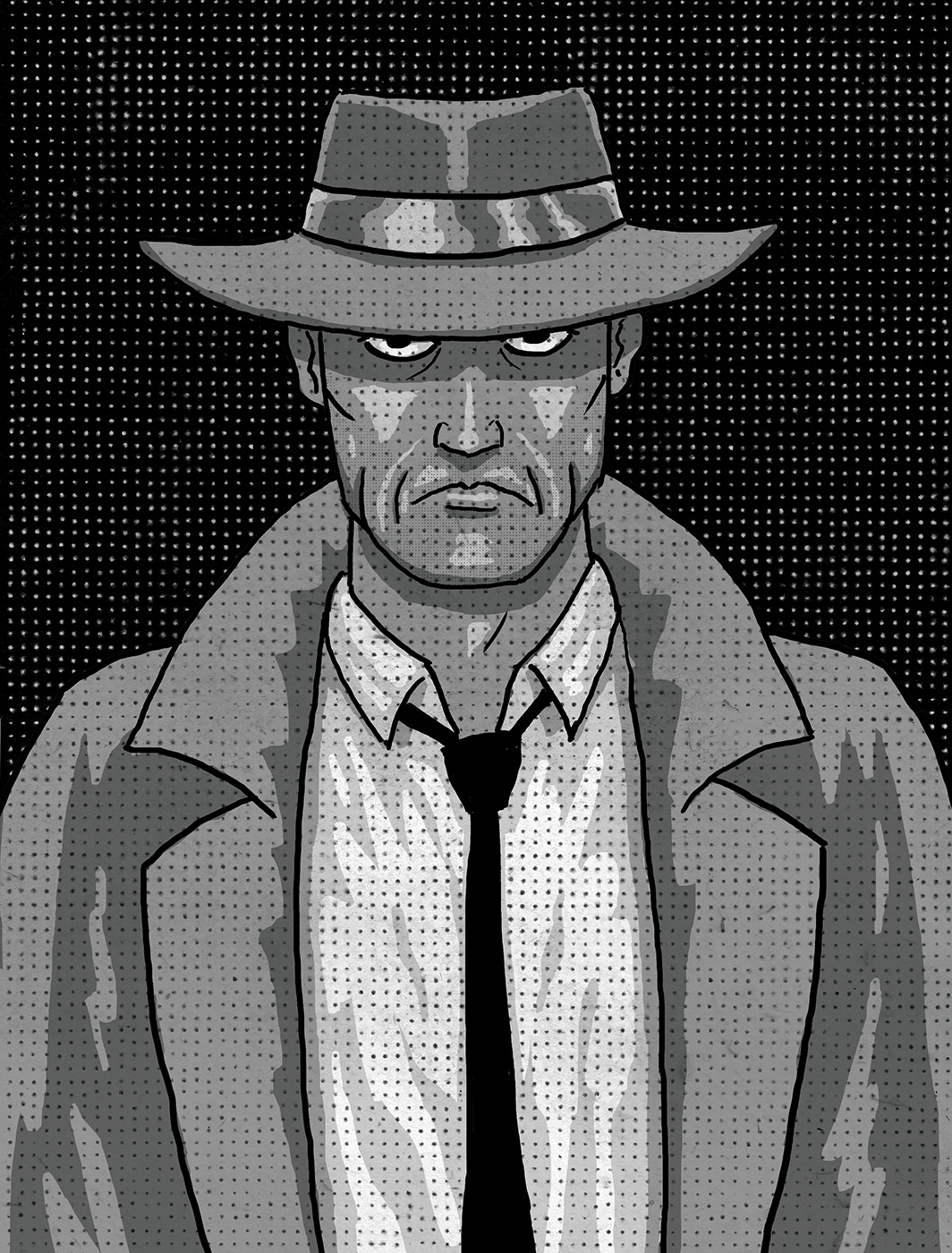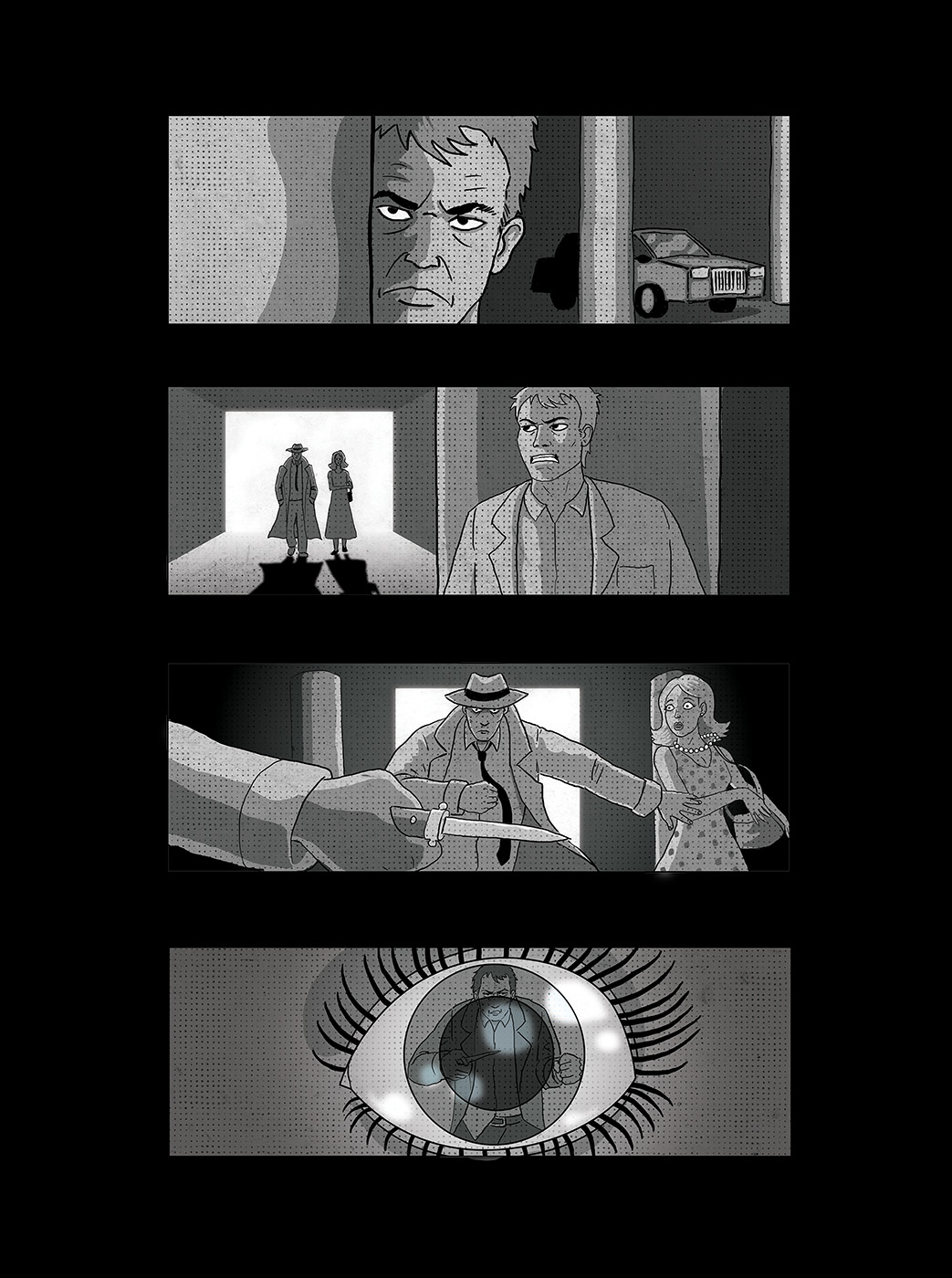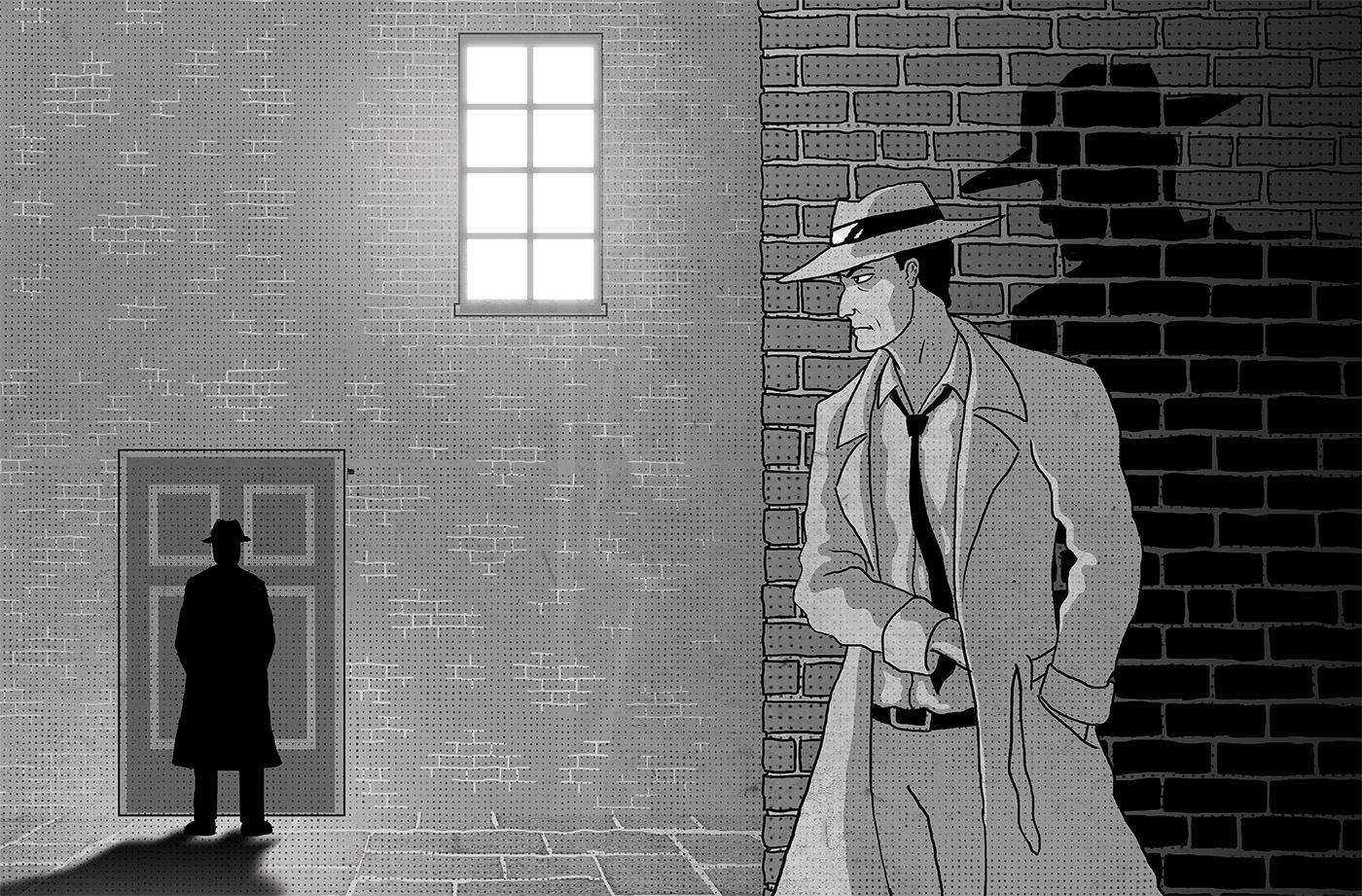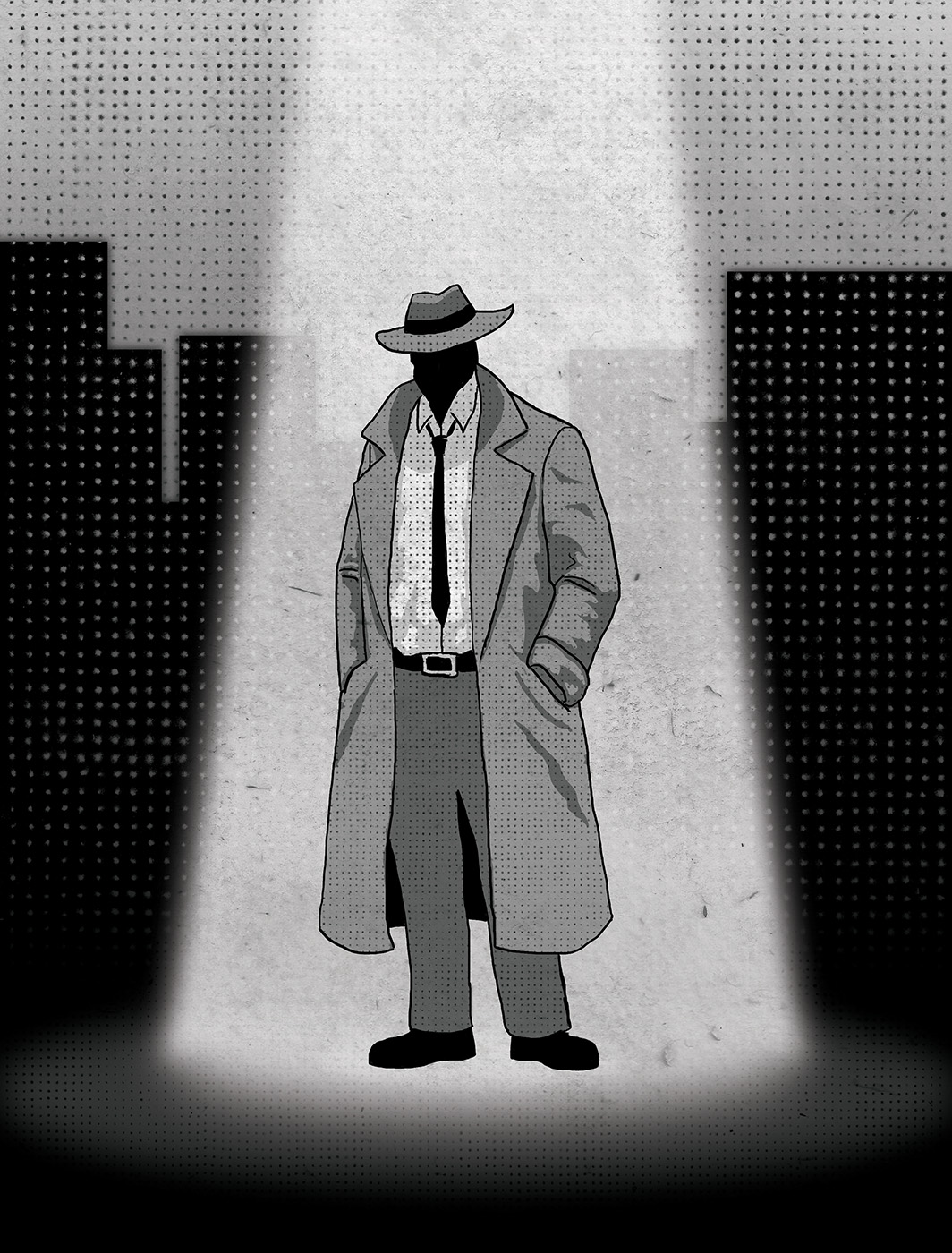A debrief with the former CIA agent–turned–private investigator handling some of the more salacious cases on the barrier island.
On a blustery November night in Berlin, a handsome, Armani-attired, 24-year-old former graduate student from Southern California leans into the bitter wind and enters an elegant manor house off busy Alexanderplatz.
His standing directive is to target foreign assets at cocktail parties, on tennis courts, at embassy events and elegant dinners on the diplomatic circuit in European capitals. To meet, charm, and ultimately cultivate foreign diplomats, journalists, scientists and government officials, assuring them that they will be handsomely rewarded if they work against their own country and for the strategic interests of the United States government.
For 11 years, Brad Robinson—recruited out of UCLA— posed as a diplomat, working undercover for the CIA’s elite “Directorate of Operations” as a specialist in intelligence collection, counterterrorism, and clandestine operations. He was based in various European capitals and was involved in highly classified operations on nearly every continent. He was a spy. And his job was to recruit traitors.
Today, Robinson oversees The Millennium Group, a boutique West Palm Beach firm he founded in 1998, that specializes in investigations and security consulting. It is manned by a team of former federal agents and tech-savvy researchers. For Robinson, it’s a far cry from flipping spies in Berlin. But it’s still a profession fraught with intrigue, from uncovering covert bedroom liaisons to white-collar boardroom shenanigans. His clients are the cheaters and the cheated: billionaire yacht owners who want some muscle onboard for their summer in the Mediterranean; parents desperate to repatriate children snatched away in bitter divorces; companies needing deep-dive background checks on prospective hires. Just across the Intracoastal from his office—in that sunny place for shady people—Palm Beach has provided a rich pool of scandals and intrigue, suspicion, and downright silly behavior that only the rich can afford. Robinson spoke with veteran journalist Tim Malloy.

TIM MALLOY: Tell me, to the extent that you can, about your days working for the CIA.
BRAD ROBINSON: I was with the Directorate of Operations, which is the part of the CIA that collects human intelligence. I was undercover as a diplomat for the State Department, as a foreign service officer at our embassy wherever I was stationed. Those three countries were Germany, Austria, and Sweden. I was portraying a State Department officer, going around the diplomatic circuit, seeking out people who might be of interest or value to government decision-makers in our country. I was shaking hands, giving out business cards, trying to make as many contacts as possible among potential targets who could be of operational interest. I was doing what they call “spotting and developing;” getting to know them, having cocktails together, and at some point inviting them over to my home for parties. During this process, there is a lot of paperwork going back and forth to the CIA. If all went well, eventually I would pitch them: Would you consider a clandestine relationship with the CIA, for whatever reason it would take. Usually, an envelope full of cash.
TM: I picture you heading to a safe house on a frigid night wearing a London Fog. Is it that much like the movies? BR: In some respects. But it would surprise many people to know that, in the initial stages, spying is almost the essence of overt. If you’re at a big diplomatic reception in Vienna, you’re not exactly hiding behind a potted plant. You are out there in the open, shaking hands and making “friends.” Introverts and party poopers need not apply. If, down the road, they accept your proposition (aka recruitment pitch), the real spy stuff begins. We will next meet in a safe house— after first running a 90-minute surveillance detection route. It gets more spooky from there. At that point, they are effectively committing treason. They, and you, are both subject to significant penalties if that highly illegal, clandestine relationship comes to light.
TM: So, you bring all this to your nascent security company, The Millennium Group. Why did you decide to go into the private sector, and why West Palm Beach? BR: For most of my first 10 years with the CIA, I was repeatedly reminded that, if I refused to take my foot off the accelerator, my luck was bound to run out. I brushed it off until about my last year, when I started to take my own mortality seriously. I had spent my entire overseas career in cold countries and, as a California kid, I wanted to get back to the sunshine and the surf. Palm Beach County seemed like a good option.
TM: Your ability to read people, the pressure-cooker environment of a covert life, that had to have been an extraordinary training ground for starting your business. BR: I’m probably better than most people at knowing when someone is lying to me or holding something back. Sometimes a client can approach you and give you a completely bogus story about why they want someone followed or someone’s background researched. And that can play a role in whether we want to accept that case.
TM: What is your most frequent client request?
BR: Surveillance, and most of that is infidelity surveillance. We usually suggest surveillance because having proof on video tape is the closest thing to a slam dunk from an unbiased eyewitness, which is our investigator. It’s all date- and time-stamped. The client gets a detailed written report and the videotape, and the client then decides whether they’ve seen enough. We have to be careful in Florida, because Florida is a two-party state: You can’t record audio without permission of all the parties involved.
TM: Is there a case that stands out?
BR: A couple of years ago, a Palm Beach man was suspicious that his much younger wife had other plans for her solo trip to France for “shopping and sightseeing.” He sent three of us to Paris for a week—we were on her flight—to shadow her every move. We caught her dead-bang with her young, French artist boyfriend.

Illustrations by Joe Kittridge.
TM: What is the strangest surveillance case you’ve handled?
BR: The case where we said, “Didn’t see that one coming!” A woman came to the office and said she thought her husband was cheating. That’s a very standard beginning, but then it veered off. She said she wanted to divorce him and that, frankly, she was in a relationship herself and that she’d do better in the divorce if she could show he was cheating. So, we started surveillance on the husband. Three days into it, we followed him to a restaurant in Fort Lauderdale. He had a rendezvous there with another well-dressed male. We assumed it was a business associate until they started acting flirty toward one another. It turns out she was right about him having an affair. We got the videotape of the two men being very affectionate. We showed it to our client. She was shocked, and didn’t say anything for a couple of minutes, which is not an unusual response under the circumstances. But even we were stunned when our client finally blurted out that the stranger in the videotape was the same man she was planning to run off with. She recalled that she had introduced them two months earlier at her company Christmas party. In the end, the wife got her lucrative divorce and the two men ended up together. She paid her bill and gave us a very good review on Yelp.

TM: Background checks are also a significant part of your business. How much can you uncover about a person?
BR: We call ours a Comprehensive Background Search and, as the name suggests, it covers a lot of ground. We use some public sources, but primarily we have proprietary, professional-grade data platforms that you can’t subscribe to unless you are a licensed private investigator. The finalized report ends up being 25 to 30 pages. It includes a nationwide criminal history, lawsuits, liens, judgements, foreclosures, bankruptcies, a 15-year address history, relatives, known associates, professional licenses, properties, vehicles, watercraft, aircraft, and a good bit more. We are able to search all of the 3,000-plus counties in the US at the same time, which you can’t do publicly. It should unearth whatever skeletons are in the closet.
TM: Though you rarely take on work as a bodyguard, or “executive protection,” as you call it, what is that job like?
BR: Most executive protection assignments are one percent pure adrenaline mixed with 99 percent sheer boredom. Consequently, training oneself to stay mentally focused (e.g. poised to respond when that “one percent” pops up) through hour after hour of a routine, uneventful shift is key.
TM: Have you provided protective services internationally?
BR: We’ve provided armed security for yachts in the Mediterranean, and we’ve provided on-board protection for shipping interests targeted by pirates in the Indian Ocean, The Caribbean, and yachts in the Mediterranean. About 10 percent of our agency’s assignments fall under the description of “personal protection.”
TM: How much do you charge?
BR: Our standard hourly rate is $150 per man-hour, plus expenses. That would apply to surveillance, for example. Sometimes it is a higher rate for specialized investigations, such as electronic debugging sweeps. What we call cyber-forensics.
TM: Your clientele is generally quite wealthy. Are high income people difficult to work with?
BR: They tend to be better at expressing what they want, what their goal is. Maybe because in their lives they are used to being organized, and delegating authority. That sort of thing.

TM: When do you pass on a prospective client?
BR: Often clients will come to us who have been watching too much TV. The client will ask us to do something, and we will say it can’t be done. Not only can’t it be done by us, it can’t be done, period. And they’ll say, “Sure it can. I saw it last night on CSI: Miami.” They really think, even educated people…they are fooled into thinking that if you see it on TV in a fake police show, then it must be doable. Some things are not legally possible, like breaking into an office to get evidence, roughing somebody up because they’ve been abusive to somebody’s daughter. People will see Jim Rockford bugging a suspect’s telephone. We can’t do those things. We’re subject to arrest.
TM: Since opening Millenium Group, have you ever felt that your life was in danger?
BR: Almost got stabbed once. Got shot at a couple of times. I was doing executive protection for a woman in a child-support battle with her ex. She wanted us to accompany her to the court proceedings. In the courthouse parking garage, her husband comes out from around a pillar and lunges at her with a knife. I got between them and managed to get him down, and the police were there within seconds. In the end, she got a better custody deal.
TM: Palm Beach clearly has its fair share of clandestine liaisons. Does it have something to do with those notorious hedges?
BR: I can’t do it justice, but we were doing cheater surveillance on a house on the Island. Workaholic husband suspects his wife who “stays home all day, alone.” First three days on the house, nada. She never leaves and has no visitors. On the fourth day, our preferred surveillance position is blocked by a landscaper’s truck. The next best spot is across the street, but the subject’s house and the house next door have high perimeter hedges, with a small gap between them. Several hours in, my partner catches a flash of movement between the two hedges, moving toward the neighbor’s house. An hour later, he films the wife sneaking back through the hedges. She had been sleeping with the guy next door!
TM: Finally, who would be your dream client?
BR: I don’t know. Might be someone like Nicolas Cage. I think he’s had five or six divorces. Or maybe Elon Musk. He’s got a lot of money and a lot of enemies.



